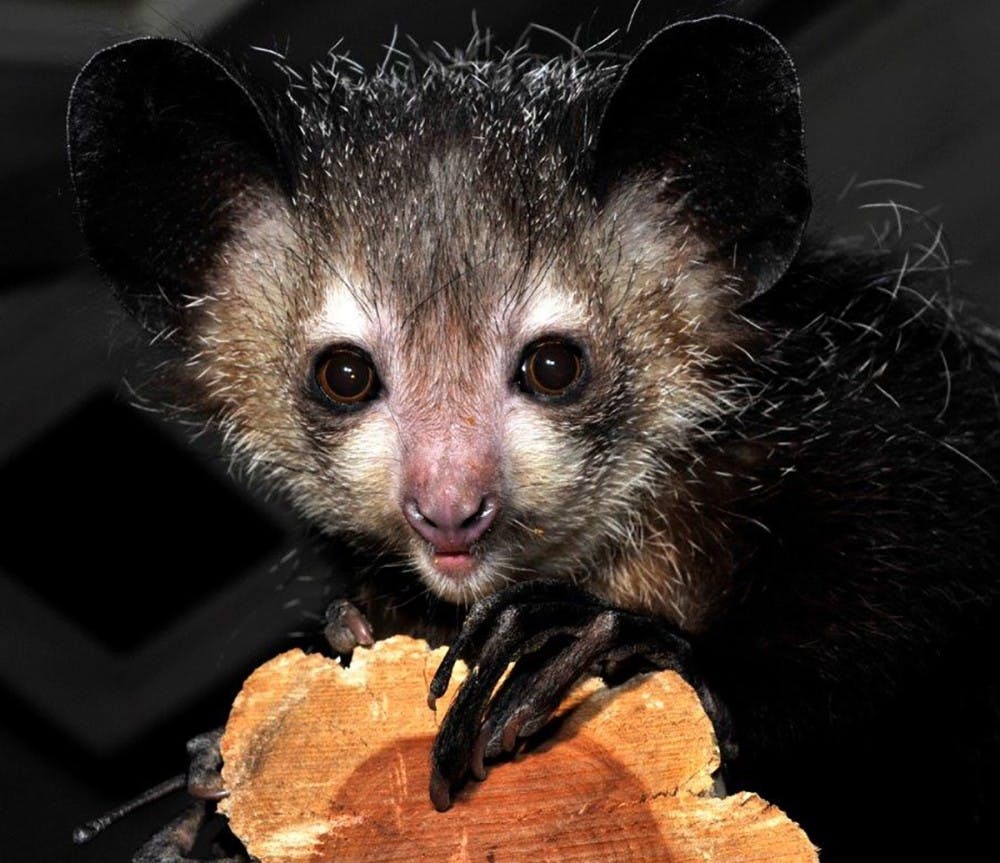Investigations are still ongoing after four lemurs died of unknown causes at the Duke Lemur Center.
Two female and two male aye-aye lemurs succumbed Oct. 25, and a fifth, who is now in recovery, also fell ill. The University's Division of Laboratory Animal Resources as well as experts from Australia, New Zealand and across the United States are involved in an ongoing investigation into the cause of death.
“We have taken air samples starting the night of the event and on several different occasions, testing for volatile organic compounds. And we took water samples, we took feed and all of those have come back without any smoking gun,” said Bobby Schopler, a staff veterinarian at the Lemur Center. “So far there’s no indication of an infectious process.”
The center has already determined that the aye-ayes’ hearts were affected in all cases, Schopler said. The lemurs experienced pericardial effusion, during which the sac around the heart fills with fluid. Although there are no preliminary signs of infectious causes, the center is still in the process of testing various samples.
Employees at the center are closely monitoring the nine remaining aye-ayes and the other lemur species, which have shown no apparent sign of illness.
With only about 50 aye-aye lemurs currently living in captivity around the world, the four lemurs accounted for a significant percentage of the population. Schopler noted their deaths have put all research centers on high alert, adding that 50 is a "magic number for sustainability."
The loss of the four lemurs has significant impacts on the future of the aye-aye species.
“It makes breeding them even more important now,” said Andrea Katz, the Lemur Center’s animal curator. “It will cause us to double up on our breeding efforts. One of the challenges is going to be that three of the four animals that died were prime breeding age.”
The loss of the four lemurs was somber news for students and faculty, but an even greater devastation to some who work at the center.
Schopler described the traumatic event as the worst week of his 30-year professional life. However, he and Katz noted that many people have reached out with their condolences.
“We have gotten so many emails and phone calls and messages of support—it’s really phenomenal—from all over the world,” Katz said. “It’s really, really kind. It sounds trivial, but it helps. People who take care of animals know what it’s like. It felt so absolutely helpless that afternoon.”
Sara Clark, director of communications at the Lemur Center, noted that the center is not fully funded by Duke and relies on private revenue, so donations and visits to the center are helpful in funding animal care.
Schopler asked the Duke community to remain patient and refrain from putting extra pressure on the investigation. He added that the center is conducting tests on food, bodily fluids, the lemurs’ intestines and stomachs, air and water.
“What we didn’t want to happen was people to speculate and come up with wild scenarios that could start all kinds of rumors,” Schopler said.
Updated sample results are expected some time in the next few weeks, as some samples have longer processing times.
“For sure the Duke community will be the first to know as soon as we figure this out,” Katz said.
Get The Chronicle straight to your inbox
Signup for our weekly newsletter. Cancel at any time.

